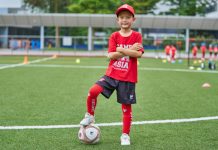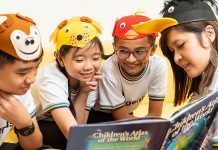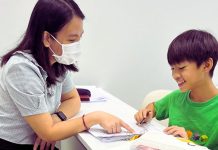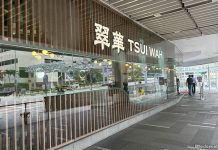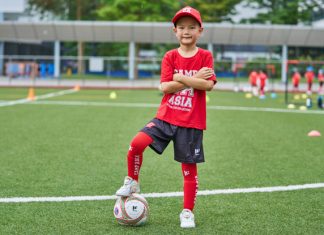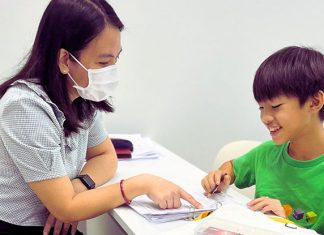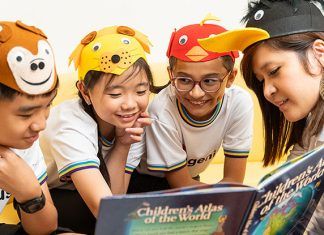

Having time to cook might be a luxury for some of us, especially when it means having to juggle work, family and self-care. There are many fast-food delivery options available but these might not be the most sustainable on both your wallet and health. Plus it’s hard to find a balanced meal. One alternative is tingkat catering services, which are home delivery food services in Singapore that provide healthy meals delivered fresh to your doorstep.
Here is a list of caterers to choose from and we hope you can find one that best suits you.
Tingkat or Home Delivery Food Services in Singapore
Foodline.sg


Make your next meal selection at Foodline.sg, Singapore’s largest catering, tingkat and cake portal with over 485 caterers to choose from. You will be spoilt for choice by the more than 160 tingkat menus and the large variety of cuisines available on the food ordering platform. The site’s user-friendly interface enables customers to explore menus, compare prices and read reviews of each caterer. To ensure quality and customer satisfaction, Foodline.sg works closely with caterers to ensure every meal is prepared with care and attention to detail.
Prices start from just $3.80 per person per day for tingkat meal plans. Choose from 5, 10 and 20 day packages for 1 to 6 people. There are lunch and dinner menus available and halal options too. Check out over 113, 000 glowing reviews, videos and photos online. Plus, Foodline has a Tingkat Savings Plan where you can save up to $40 per month on ALL tingkat menus at a promotional price of $4.90 per month (U.P. $20 per month), limited to the first 1,000 sign up only.
With Foodline, you can be assured there is a suitable meal option for your family! Browse the full selection of Tingkat meal packages at FoodLine.
Ronnie Kitchen
Ronnie’s Kitchen offers both lunch and dinner meal delivery services. In case of any change in plans for eating-in, you can notify the company at least one working day in advance and the meal will be replaced for another day. Do note that they do not deliver to condos and landed properties.
Website: Ronnie Kitchen
Savoury Catering
Savoury Catering provides economical meals that come with three dishes and a bowl of soup or four dishes, with a daily menu option to select from each day. You can also opt for brown rice at an additional fee. They pride themselves for not using MSG and for using lesser amounts of oil and salt.
Website: Savoury Catering
Kim Paradise
Kim Paradise is a home-meal delivery (tingkat) service with an incredible heritage. With the love of whipping home-cooked goodness, Kim Paradise serves up to 6,000 customers daily. The brand is dedicated to fresh, wholesome meals while meeting high-quality standards.
Website: Kim Paradise
Pak Dollah
Pak Dollah is halal-certified and 100% Muslim-owned. They offer a variety of Malay dishes that are freshly cooked and packed every day and even include a dessert in their meals! Ordering is done via WhatsApp or their Facebook page. You can also opt for a bento or meal box lunch option which is available for both lunch and dinner.
Website: Pak Dollah
Tingkat Delivery by Richfood


Tingkat Delivery has meal plans that are available for weekday deliveries for both lunch or dinner. The price for each meal is inclusive of the standard three dishes plus one soup or four-dish option with white or brown rice. They have two menus on a rotational basis and serve up healthy dishes in all their meals. They deliver to most residential parts of Singapore except the CBD district, certain parts of Central Singapore and Sentosa.
Website: Tingkat Delivery
Mum’s Cooking
Those looking for healthy meals might be drawn to Mum’s Cooking tingkat offerings. They serve strictly MSG-free food, uses fresh and healthy ingredients as well as eco-friendly food containers. The meals that are sent to your doorstep will ensure both nourishing and tasty meals.
Website: Mum’s Cooking Online
Fatty Daddy Fatty Mummy
While its brand name runs contrary to the kind of food it prepares, Fatty Daddy Fatty Mummy ensures that customers enjoy dishes which have no processed food and MSG-free options to encourage healthy eating. It is the first to be certified with “Healthier Choice”, uses low sodium salt, healthier canola oil, less salt, less oil, no MSG, no artificial flavours, with nourishing soup accompanying the dishes.
Website: Fatty Daddy Fatty Mummy




